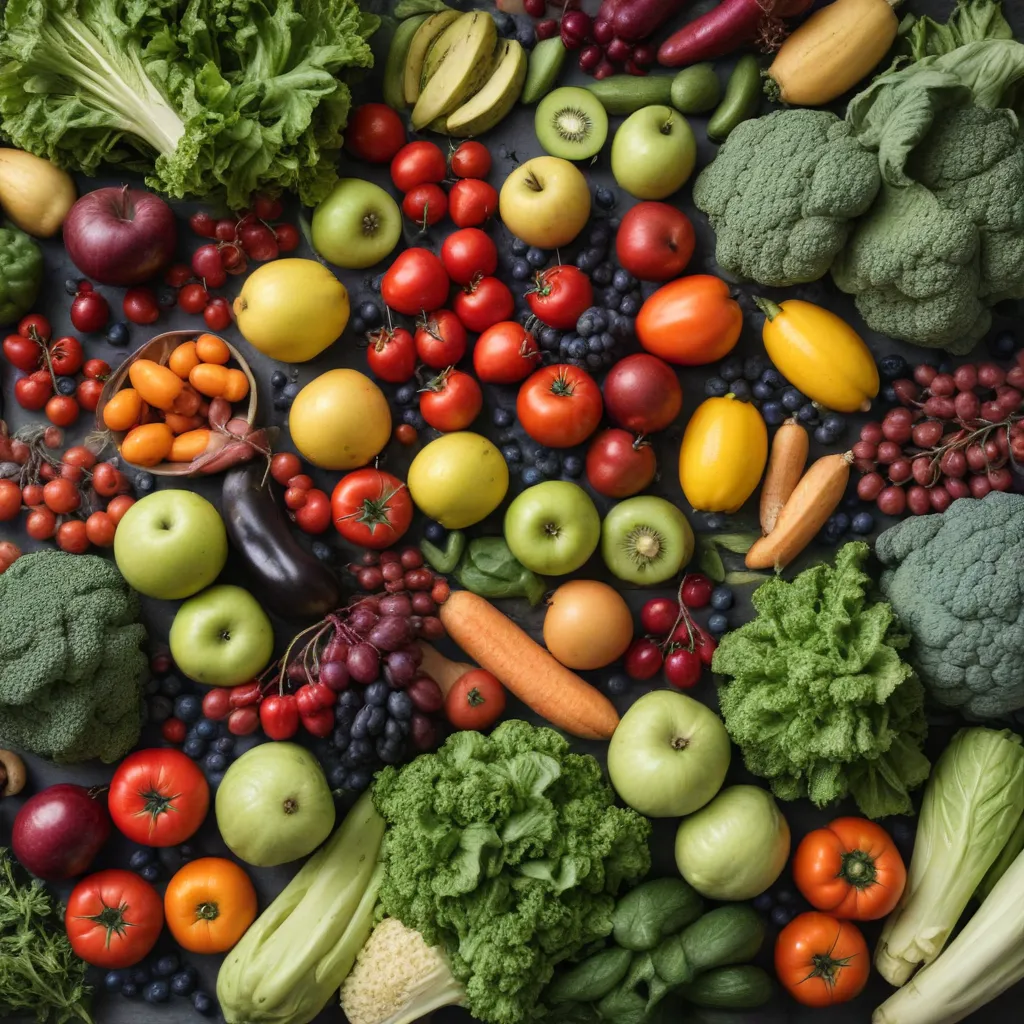
The Nutritional Significance of Antioxidants
Antioxidants are compounds that play a vital role in maintaining our overall health and well-being. These remarkable molecules have the ability to neutralize harmful free radicals and reactive oxygen species, which can otherwise damage cells, proteins, and DNA, leading to various chronic diseases. Understanding the importance of antioxidants is key to optimizing our nutritional intake and promoting long-term vitality.
Understanding Antioxidants
Antioxidants work by inhibiting or delaying the oxidation of other molecules. This process is essential for counteracting the detrimental effects of oxidative stress, which has been linked to the development of conditions such as cancer, heart disease, neurological disorders, and accelerated aging. By scavenging these reactive species, antioxidants help maintain the delicate balance within our bodies, supporting optimal cellular function and safeguarding our long-term health.
The Role of Produce in Antioxidant Provision
Fruits and vegetables are powerhouses when it comes to antioxidant content. These plant-based foods are naturally rich in a diverse array of antioxidant compounds, including vitamins, minerals, and phytochemicals. Consuming a variety of produce on a regular basis ensures that we obtain a well-rounded intake of these essential protective nutrients.
Antioxidant Diversity in Fruits and Vegetables
Each fruit and vegetable offers a unique antioxidant profile, with some standing out as particularly rich sources. For example, berries are renowned for their high concentrations of anthocyanins, while leafy greens are prized for their chlorophyll content. Citrus fruits are celebrated for their vitamin C, while tomatoes are celebrated for their lycopene. This diversity allows us to maximize our antioxidant intake by incorporating a wide variety of produce into our diets.
Exploring the Antioxidant Potential of Produce
Vitamins and Minerals as Antioxidants
Certain essential vitamins and minerals found in fruits and vegetables play pivotal roles as antioxidants. Vitamins C and E, for instance, are potent free radical scavengers, while minerals such as zinc and selenium are integral components of antioxidant enzymes. Ensuring adequate intake of these micronutrients through a balanced diet is crucial for maintaining optimal antioxidant defenses.
Phytochemicals: Nature’s Protective Compounds
In addition to vitamins and minerals, produce is abundant in a diverse array of phytochemicals – plant-derived compounds with powerful antioxidant properties. These include carotenoids, flavonoids, phenolic acids, and terpenes, each with their own unique mechanisms of action and health-promoting benefits. Consuming a rainbow of fruits and vegetables ensures that we harness the synergistic effects of these phytochemicals.
Optimizing Antioxidant Intake through Dietary Choices
By making strategic dietary choices, we can ensure that we maximize our antioxidant intake. Prioritizing fresh, minimally processed produce, selecting foods in-season, and incorporating a wide variety of fruits and vegetables into our meals are all effective ways to boost our antioxidant consumption.
Unlocking the Nutritional Power of Produce
Antioxidant-Rich Fruits: Colorful Champions
Fruits are renowned for their vibrant colors, which often serve as a visual cue for their impressive antioxidant content. Berries, such as blueberries, raspberries, and blackberries, are particularly notable for their high concentrations of anthocyanins, while citrus fruits like oranges and grapefruits are rich in vitamin C. Pomegranates and cherries also stand out for their exceptional antioxidant profiles.
Vegetable Varieties and Their Antioxidant Profiles
Vegetables are equally bountiful in antioxidant compounds. Leafy greens, such as kale, spinach, and Swiss chard, are packed with chlorophyll, carotenoids, and other potent antioxidants. Cruciferous vegetables, including broccoli, cauliflower, and Brussels sprouts, are renowned for their glucosinolate content, which has been linked to cancer-preventive properties. Tomatoes are celebrated for their lycopene, while bell peppers are prized for their vitamin C and carotenoid content.
Balancing Antioxidant Intake for Optimal Health
Incorporating a diverse array of antioxidant-rich fruits and vegetables into our diets is key to maintaining optimal health. By striving for a colorful, varied array of produce, we can ensure that we obtain a well-rounded supply of the various antioxidant compounds our bodies need to thrive.
The Impact of Antioxidants on Human Health
Antioxidants and Disease Prevention
Numerous studies have demonstrated the powerful role of antioxidants in reducing the risk of chronic diseases. Antioxidants have been shown to protect against the development of certain cancers, cardiovascular diseases, neurodegenerative disorders, and even type 2 diabetes. By quenching harmful free radicals and mitigating oxidative damage, antioxidants play a pivotal part in preserving overall health and longevity.
Antioxidant Benefits for Immune Function
In addition to their disease-preventive properties, antioxidants also play a crucial role in supporting robust immune function. By neutralizing oxidative stress, antioxidants help maintain the integrity of immune cells, enhancing their ability to effectively respond to pathogens and infections. This, in turn, bolsters our overall resistance to illness and promotes faster recovery times.
Exploring the Synergistic Effects of Antioxidants
The true power of antioxidants lies in their synergistic effects. When consumed as part of a diverse, plant-based diet, antioxidants interact with one another, amplifying their individual benefits. This synergy allows for enhanced bioavailability, increased protective properties, and a more comprehensive defense against the damaging impacts of free radicals and oxidative stress.
By unlocking the nutritional abundance of our produce, we can harness the incredible power of antioxidants to support our overall health and well-being. Whether savoring a colorful array of fruits, indulging in a leafy green salad, or incorporating a variety of vegetables into our meals, we can rest assured that we are nourishing our bodies with the essential protective compounds they need to thrive.
